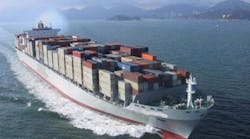Technology is moving quickly and the freight forwarding industry is feeling its benefits.
In a recent survey from IAG Cargo 70% of freight forwarders are expecting the rate of technological change to increase in the year ahead, in comparison to one year ago, and 81% of forwarders believe technological innovation will have a positive impact on their business.
The global survey of more than 400 freight forwarders in 47 countries, ranked their expectations within the next 12 months and said that increased automation and digitalization as the most important trends in the air freight industry in the near future.
The growth of eCommerce came in second at 41% and trade tensions came up third in importance for freight forwarders, with 29% of survey respondents listing trade tensions dampening growth as a very significant or significant trend.
“We are hugely encouraged by the global appetite of freight forwarders to implement real change in the fields of digitalization and automation,” said Enikö Matanov, Director of Strategy & Revenue Optimisation, IAG Cargo “We are working with start-ups from the Hangar 51 accelerator program, trialing new technologies and investing in innovation to improve the way we work.”
The biggest challenge? Talent and attraction and retention topped the list, at 79%, of the industry’s problem area. Technology advances maybe one of the factors causing the challenge. Emerging tech will create more than 133 million new jobs by 2022 according to the World Economic Forum’s 2018 Future of Jobs report.
The mismatch between technological advances including automation, artificial intelligence, data manipulation, and machine learning and the skills and experience workers need to leverage these technologies is an issue," the report said. "Technology cannot deliver the promised productivity gains if there are not enough human workers with the right skills."



